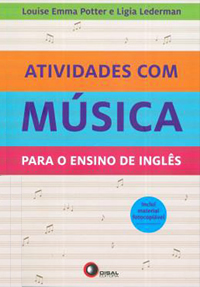By - Daniel Israel

A few years after completing an MA in Film and TV Studies in 2004, I moved from the UK to the Netherlands in 2007. Fast forward another few years, and shortly after successfully obtaining a CELTA (Cambridge English Language Teaching for Adults) in 2010, I started up D.I. Linguistic Solutions in November 2011 in Leiden, the Netherlands. Since then, I have taught 2500+ hours of EFL mainly to adults in cities such as Amsterdam, The Hague and Rotterdam. As a dedicated, determined and driven character, I wrote, edited, and in April 2017, independently published The EFL Teacher's Handbook via Amazon Kindle.
Back In late 2014, EFL Magazine approached me and asked me to write about my teaching experiences in the Netherlands. Teachers’ stories featured early on in my EFL writing career, and were based on real life experiences when teaching, anecdotes from inside and outside of the classroom and a zestful playfulness with language. Next, interviews with teachers worldwide tackling serious issues such as teachers pay and burn out required a change in style, displaying versatility.
A couple of years later, I began posting short articles on Linked In, so I could publish posts whenever I wanted to; after a few articles, the book started to take shape and I selected the chapters and articles that still had to be written. The whole process including the early pieces took me around two years of hard work, but it is without a doubt, the most enjoyable project I have ever been involved in.
Blurb
The EFL Teacher’s Handbook is a collection of 50 short and snappy articles of 800-1200 words in length that can be dipped into and enjoyed by readers. As a compendium that covers a broad range of interesting areas for teachers; it is informative, resourceful and can hopefully even inspire ideas.
With a gap in the market, as most EFL books are academic text books or reference guides that are not usually read cover-to-cover, this unique creation is not only ideal for new and inexperienced teachers, but also for seasoned professionals who may not have explored a certain area of EFL teaching, or those who are seeking a fresh perspective. The target audience also includes Directors of Studies and Assistants, Teacher Trainers, and even those with a specific interest in the following: film, philosophy, psychology and writing, which also feature due to some cross-over with themes, or areas of particular interest to the author, such as classroom management, motivation, the role of the teacher, and using the medium of film to teach EFL creatively.
As a handbook, the sheer variety of topics and issues that are covered from business English and CELTA to DELTA, EAP and ESP, featuring interviews with native and non-native speakers, plus how to use humour, role-plays and stories in lessons (always with digital sites and book references), and, through the author’s experiences teaching, sharing anecdotes, ideas and hopefully inspiring new ones from the readers, this handbook would be welcome in any decent language centre, or on any open-minded EFL teacher’s bookshelf.
Self-Publishing pearls of wisdom
If you wish to write your own EFL book, you should begin by writing for a magazine (i.e. EFL Magazine) and getting experience working with the editor. This will help you to structure your writing. If the ideas are flowing and your output could potentially grow tenfold, then you may consider publishing a blog or via Linked In. It is useful to have your own network of like-minded individuals who give you feedback writing comments and giving praise when it is deserved.
Be under no illusions, writing can be a very personal journey, and is not for everyone. If writing is a passion and you like a challenge, then this may be up your alley. If you think that you can become rich writing books, then you are may even be deluded, but then again, you could become the next J.K. Rowling. The truth of the matter is that there are many elements to success, making a professional looking, well-written, original piece of work, understanding your audience, knowing how to go about marketing your product, and having a certain degree of luck can all play a part.
Advice from others can be infinitely valuable and should not be understated. In my case, I learned from a one of the best EFL publishers in the business that The EFL Teacher’s Handbook works best as a self-published book, is quirky and has been well put together. From a friend who is a marketing professional, I became aware of how targeted advertising on Facebook works, first heard about ad words, and from my own encounters with fellow English teachers, I found out that showing people your book as a physical entity can be effective, as well as experience gained giving interviews or pitches, which have taught me that clearly explaining the premise behind a book, in person or written in a post, can be the most powerful way to spark interest. Above all, once you have written your magnum opus, don’t forget to be proud of your achievement; nobody can take that away from you. Happy writing!!
Links
Amazon co.uk: http://amzn.eu/ezU62r3
Amazon.com: http://a.co/b87dGg3
Linked In: www.linkedin.com/in/dannyisrael
D.I. Linguistic Solutions: https://linguisticsolutions.nl
D.I. Linguistic Solutions FB: www.facebook.com/D.I.LinguisticSolutions
Twitter: https://twitter.com/Englishpancake
EFL Magazine Author page: www.eflmagazine.com/author/daniel-israel
LIVRO RECOMENDADO
